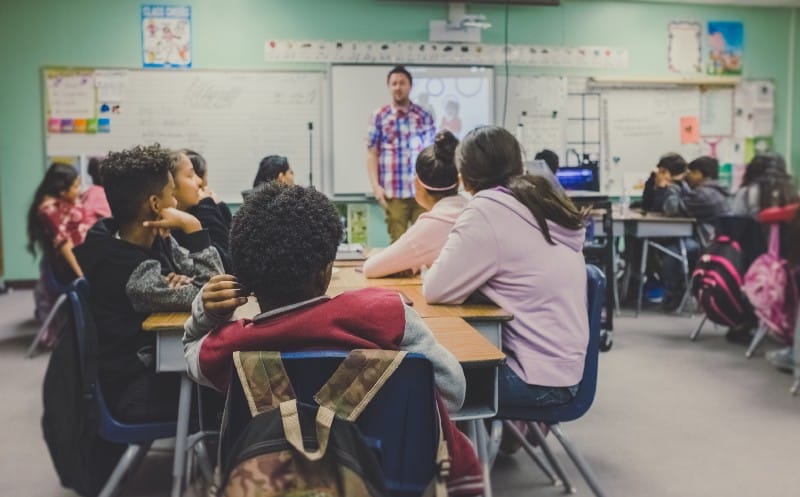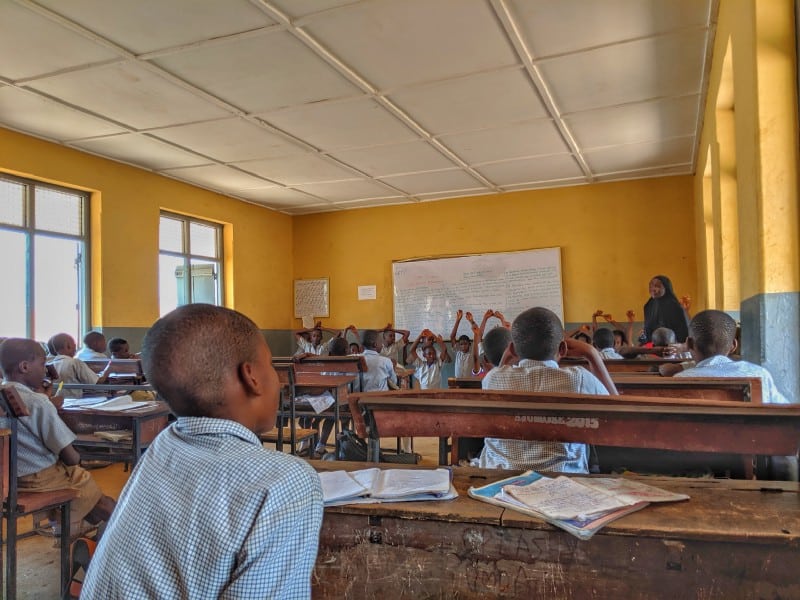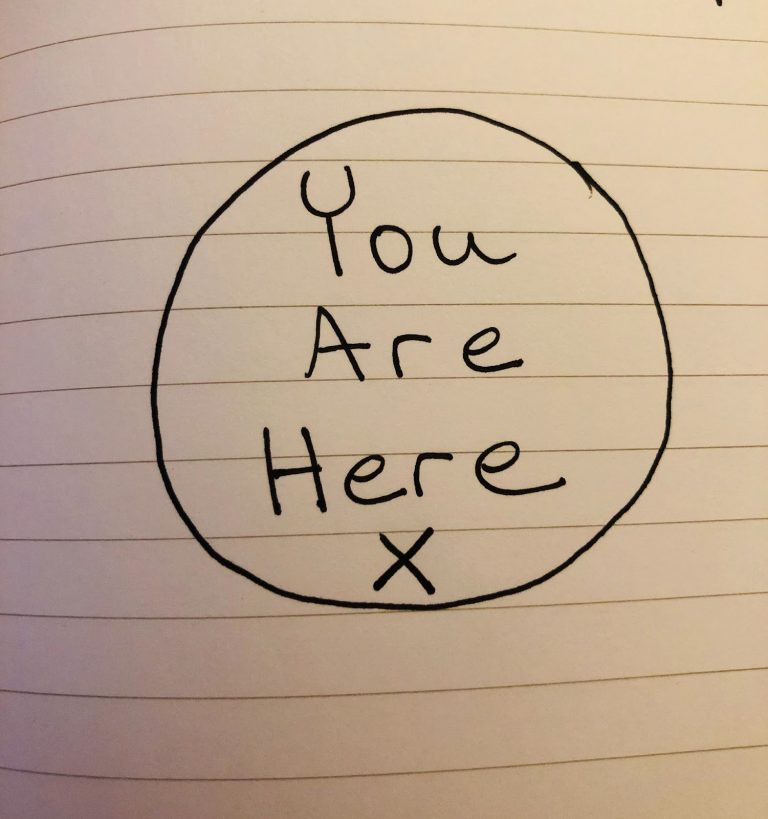Using permaculture ethics in public education to engage children in sustainable efforts.

Lets start with a great concept that is gaining momentum in public sectors of education: collaborative learning. Collaborative learning rests on the assumption that collaboration over competency reaches better results, to the individual and the collective, developing at the same time the competencies of each. What does this mean in practice? That the way in which children and adults collaborate can lead to better results to the proposed goal, whether it is understanding of information, whether it is collaborative notions in the workplace. Collaborative learning is a way in which through the introduction of concepts via group workshops, it is designed an idea that has metamorphed from a single individual, through other ideas of the collective. This idea is gaining ground in all sectors of education, from infancy to adult education and higher education. The premise behind it is based on solid research over developmental methodology through assessment of learning outcomes. So, a group understands concepts better, individually, than the individual working solo. This is one of the basis of the second permaculture ethic, resting on the care of the people.
An example is a course I’m taking in adult education, that focuses on team workshops and competence building through collaborative work. The results are incredibly higher than my attempts in solo work — I tried both. In any case, the idea that we can work together for a common objective is one that can be inculcated since the child’s early years.
Jumping back to the first ethics, I’ve been dabbling in a myriad of courses from philanthropic organizations, tip toeing around social entrepreneurship, theory of change, and other subjects, and one issue that I found ashtonishingly disconnected from these things is sustainability and ecology. The building the benchmarks for future social designers in the normal-people land is also building a trade in what we can accomplish and the financial abilities of each sector, which will respond to profit margins instead of results. One primary thing taught is how to build a project that, despite good results, does not fail due to lack of funding. And it always goes straight to breaking one’s back over funding.
A particularly distressing piece of information for me, is how the new generations of philantropic volunteers are distributing GMOs for free and how that is regarded in that “world” as something to be revered.
But what does this have to do with public education anyway? The truth is, the longer we take to engage the children of today in sustainable efforts, not just in taking care of the schools’ green spaces or understanding a bit about how to plant carrots, but in being actively engaged in social transformation through the SDG’s that… well… are taking 30 years to be in effect (it’s a bit laughable sure, but only because we’ve collectively given up on it, maybe not individually, but the kids of today see it as a valid solution), the longer it will take to actually implement change. Kids are eager, we’ve witness the 2019 Climate Change Protests, new 15 year old activists and we witnessed Greta saying what we want to say to the UN, but is the UN the right tree to be barking at? That’s the issue.
A complex problem exists from the fundamental level of the person, to a social level, to an institutional level, to a secotorial level, and then to the systemic level. To reach a systemic change, we need to go through all the remaining levels. And the UN is as far from the actual system than the US government allows it to be. An adolescent can understand which doors to knock on if it understands the local issues of their complex system problem, such as Climate Change. There’s no point in arguing with the UN, if the people there are already commited, but need to respond to certain institutional and sectorial aspects which are commited to the contrary.
With this we reach the first ethic: Earth Care. Getting kids involved in actual solutions. And it’s already a practice in most of our Western society, but not all, and what I mean isn’t making this solution homogeneous to each public institution, but to provide local solutions to the public sectors in education. I mean, I was writing down a project objective, and I realized it’s more of a national objective and I’m here working solo thinking I’m going to single handedly change my country’s culture? I either overestimate myself, or I need help. With the involvement of the newer generations that are more keen to understanding these issues and actually want to take a part in it, it is possible to reach our desired goals in 10, 20 years time… kids grow up and become responsible adults, at least most of them. If we teach them segregation, inaccurate history and most of all, national pride over ethics, we can’t reach any sustainable objective at all.
And there’s the tough part… since the other two are already in trial application. The fair share part of the third ethic. Two words: solidarity economies. “Ouch, you socialist!” Hear me out…
There is a bigger issue here, that is not to completely change the way we look at solidarity economies, but if covid-19 taught us anything is that we can expect a lot of good things coming from gift economy. Pay what you can, be collaborative and work on ecological matters, must be the pinacle of education anyhow, with education being free in most places, it’s genuinely a breeding ground for good permaculture ethics from the ground up.
How then to apply the third ethic to a more fair and inclusive of ecological matters, particularly in an economic perspective. For me, capital could be abolished, but I do not represent the majority of the population and to reach the majority of the population we should be deeper into what the concept of well-being and how having a fair share of what is produced, including housing, electricity, food, and education, can be through solidarity and collaborative working and learning.
It’s a way we can socially work towards equality: by working together, taking care of the earth and having solidarity between us. Inculcating these ideas in the public sectors of education, can cause more good than harm.

The issue with teaching ethics is that is a realm of Philosophy, which is not properly studied unless you follow a Philosophy major in your higher education pursuits. Besides, each public sector of education in each country has the inculcated belief system of each culture. I seriously had a History teacher trying to run me over with his car when I fought for the teaching of my country’s role in slavery in our classes. I know how hard it has been in my circle of acquaintaces to actively be engaged in changing paradigms, I’m met with silence and paternalizing comments, or complete disregard. But I haven’t put myself in an echo chamber, and maybe that’s good.
The way we attribute power is also important, I don’t deem the silencers or the paternalizing as the powerful, I deem them as people who want to change but haven’t figured out how. Nobody, except lunatics, is happy with how things are… the issue with permaculture has always been being too out of the system, too hippie, too alternative, or an alternative people are not looking for. But most available form of permaculture, the ethics, can be transversal to the human needs that are common to us all. I think that might be the best approach. Some of us are teachers, so are we willing to go the extra mile to use what’s available to make a change?
A big issue happening is how people are so adamant that this current movement of people is trying to erase history, that they have ceased to question history itself in order to defend it. These were once children who went to public and private schools and were taught their ethics through their educational methods. I remember school being a horrible place to be, but kids today are being offered more alternatives, from homeschooling to outdoor schooling, to alternative private schooling.
The biggest revolution that can happen in education, has to begin by a fresher perspective on teaching, not on the behaviors of the students. In Sociology, we study the development of an adult with a myriad of social agents, family being one and school being another, in childhood, and even groups of friends as another. The way in which we can transform society, by pressuring a systematic change, has to begin by the personal aspect, to the social, and institutional, until the sectoral and systemic fold. And if there is a time to do it, it’s now.
I rest my case.
Be well.



